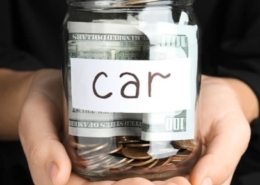Can You Return a New Car After Buying It?
Will the dealership let you return a car after buying it?
Buying a new car is an exciting experience, but what happens if you’re unsatisfied with your purchase? Can you return a new car to the dealership after buying it?
This article will delve into returning a new car and provide valuable insights. We’ll explore the factors determining whether you can return a new car, the applicable laws, dealership policies, and some essential tips.
So let’s dive in!
Car Buying Tip: Finding an affordable Nissan vehicle can be challenging today. But don’t worry! Requesting a few free dealer quotes through an online car-buying service will let you compare local dealer prices and get a great deal.
Table of Contents
- The importance of research
- The federal cooling-off period
- Understanding the retail installment contract
- Buyer’s remorse: Dealing with post-purchase doubts
- Lemon laws and consumer protection
- Dealership return policies
- The time frame for returning a new car
- Vehicle condition and mileage restrictions
- Documentation and paperwork
- Negotiating with the dealership
- Seeking legal advice
- Tips for a smooth return process
- The importance of research and test drives
- Financing and trade-in considerations
- Other options besides returning a new car
- Common misconceptions
- What about returning a used car?
- If you’re still not satisfied
- Correct steps to purchasing a new car
- Frequently asked questions (FAQs)
- In Conclusion
The Importance of Research
Returning a new car can be very frustrating and possibly expensive, depending on the dealership. The best advice I, or anyone, can give you is to take your time and thoroughly research vehicles and prices before signing on the dotted line.
Before delving into the specifics of returning a new vehicle, it’s crucial to emphasize the significance of conducting thorough research before purchasing.
By researching different car models, dealerships, and prices, you can make an informed decision and potentially avoid the need to unwind a deal altogether.
The Federal Cooling-Off Period
When it comes to new car purchases, it’s important to recognize that there is typically no cooling-off period.
Unlike specific federal rules designed to protect consumers from high-pressure door-to-door sales tactics, these regulations explicitly exclude automobiles.
Once you’ve signed the sales contract, you legally own the car, with the law generally favoring the seller.
However, while the situation may seem discouraging, there might still be potential avenues for recourse. It ultimately rests with the dealer to decide whether they are willing to unwind the deal.
While dealerships strive for customer satisfaction, canceling a car purchase can be a burdensome process. It involves canceling loans, completing paperwork to restore the vehicle’s “new” status, adjusting salesperson commissions, refunding the selling price in the case of a trade-in, and retrieving the title.
Although the decision ultimately lies with the dealer, open communication and negotiation may present possibilities for finding a resolution that satisfies both parties. By discussing concerns and expressing the desire to address any issues, you may be able to work out a mutually agreeable solution.
It’s crucial to approach the situation with a clear understanding of the challenges and potential costs to the dealer. This awareness can help shape discussions and increase the likelihood of a successful outcome.
Understanding the Retail Installment Contract
When you buy a new car, you enter into a retail installment contract with the dealership.
This legally binding document establishes the terms and conditions of the sale, ensuring clarity and protection for both the buyer and the seller.
It outlines crucial aspects such as the vehicle specifications, purchase price, payment terms, auto warranties, and any additional provisions specific to the transaction.
Carefully reviewing and comprehending the retail installment contract is of utmost importance.
Doing so lets you know your rights and responsibilities as a buyer and the dealership’s obligations.
Take the time to go through each clause, seeking clarification on any ambiguous terms or provisions. Don’t hesitate to consult a legal professional for guidance if needed.
Notably, the contract often includes the return policies and procedures applicable to the new car.
It may specify the timeframe within which returns are allowed, any restocking fees or penalties associated with the return, and any requirements related to the vehicle’s condition.
Familiarizing yourself with these details will help you decide whether to return the car after the purchase.
Remember, the retail installment contract is a contractual agreement between you and the dealership, establishing the foundation for a fair and transparent transaction.
Understanding and adhering to its provisions allows you to confidently navigate the car buying process and ensure a smoother experience.
Buyer’s Remorse: Dealing with Post-Purchase Doubts
It’s not uncommon to experience a sense of buyer’s remorse after purchasing a new car.
Buyer’s remorse refers to the feeling of regret or uncertainty that arises after making a significant purchase.
If you find yourself questioning your decision to buy a new car, here are some strategies to help you navigate this common phenomenon:
- Allow Time for Adjustment: Give yourself time to adjust to your new car. It’s natural to feel uncertain immediately after a big purchase. As you spend more time with the vehicle, you may find that your initial doubts fade away.
- Evaluate Your Reasons: Take a moment to reflect on the reasons behind your purchase. Consider the factors that led you to choose this specific car, such as its features, performance, and practicality. Revisiting your initial motivations can provide reassurance and reaffirm your decision.
- Focus on the Positive: Shift your attention to the positive aspects of owning the new car. Please list its benefits: improved safety features, enhanced fuel efficiency, or a more enjoyable driving experience. Reminding yourself of these advantages can help alleviate buyer’s remorse.
- Seek Support and Perspective: Contact friends, family, or fellow car owners for their insights and experiences. Hearing about others’ positive experiences or receiving reassurance can help put your doubts into perspective.
- Maximize Your Ownership Experience: Take proactive steps to maximize your new car ownership. Stay on top of routine maintenance, explore the vehicle’s features and capabilities, and enjoy the freedom and convenience it provides. By fully engaging with your new car, you may find that any lingering doubts dissipate.
- Consider the Long-Term Value: Consider your new car’s long-term value and benefits. The initial doubts may seem less significant as you enjoy years of reliable transportation and potentially increased resale value.
- Explore Modification Options: If certain aspects of the car are causing dissatisfaction, consider exploring modification options. Adding personalized touches, such as upgrading the audio system or enhancing the interior comfort, can help create a stronger sense of ownership and satisfaction.
- Evaluate Alternative Solutions: If your concerns persist and you genuinely believe that returning the new car is the best option, familiarize yourself with the return policies outlined in the purchase agreement or dealership policies. However, returning a new car may not always be straightforward and subject to specific conditions and timeframes.
Remember, buyer’s remorse is a familiar feeling that can occur after any significant purchase, including a new car.
By taking a rational approach, reflecting on your decision, and considering the steps outlined above, you can gain a clearer perspective and make informed choices about your new car ownership experience.
Lemon Laws and Consumer Protection
Lemon laws are state-specific laws designed to protect consumers who unknowingly purchase defective vehicles.
These laws vary by jurisdiction, but manufacturers must address significant defects in new cars.
If your new car qualifies as a lemon under applicable law, you may be eligible for a return, replacement, or refund.
Lemon laws aim to ensure that consumers are not left with vehicles with substantial defects, which can significantly impact safety, value, and overall usability.
To determine if your new car meets the criteria of a lemon, you need to consider factors such as the number of repair attempts made to address the issues and the timeframe in which these attempts were made.
If you suspect your new car is a lemon, taking specific steps to protect your rights and seek appropriate recourse is essential. Here’s some advice:
- Understand the Lemon Law: Familiarize yourself with the provisions specific to your jurisdiction. These laws outline the requirements for a vehicle to be classified as a lemon and the available remedies.
- Document the Issues: Keep detailed records of all the issues you have encountered with your new car. Make a note of dates, descriptions of problems, repair attempts, and any communication with the manufacturer or dealership.
- Follow Repair Procedures: Ensure you have followed the repair procedures outlined in the warranty or owner’s manual. Allow the manufacturer or dealership to address the issues by scheduling repairs and documenting the results.
- Communicate with the Manufacturer/Dealership: Maintain clear and thorough communication with the manufacturer or dealership regarding the defects and your concerns. Keep copies of all correspondence for your records.
- Consult with an Attorney: If you believe your new car qualifies as a lemon and the manufacturer or dealership is not providing a satisfactory resolution, consider consulting with an attorney experienced in lemon law cases. They can guide you through the legal process and advocate for your rights.
Remember, each jurisdiction’s lemon law has its specific requirements and procedures.
It’s essential to consult the relevant laws in your state or country and seek legal advice to ensure you understand your rights and take the appropriate steps if you believe your new car is a lemon.
Dealership Return Policies
While lemon laws primarily apply to defective vehicles, reputable dealerships may have their in-house return policies for non-defective cars.
It’s essential to check with the dealership about their specific policies regarding returns.
Some dealerships offer a short return window, usually 3-7 days, allowing you to return the car within a specified period if dissatisfied.
It’s important to note these dealership return policies are typically focused on used car sales.
The Time Frame for Returning a New Car
Although rare, if the dealership has a new car return policy, the time frame for returning the vehicle varies from dealership to dealership. It can range from a few days to a couple of weeks.
It’s crucial to familiarize yourself with the dealership’s return policy and adhere to the specified time frame if you want to return the vehicle.
Vehicle Condition and Mileage Restrictions
Dealerships often impose certain conditions on returned cars.
These conditions may include limitations on the vehicle’s mileage and overall condition.
Returning a car in pristine condition, without excessive wear and tear, increases the likelihood of a successful return.
Documentation and Paperwork
Returning a new car involves paperwork and documentation.
Ensure you have all the necessary documents related to the purchase, such as the sales contract, vehicle registration, and warranty information.
These documents will be crucial during the return process.
Negotiating with the Dealership
If you wish to return a new car, it’s essential to negotiate with the dealership calmly and respectfully.
Explain your concerns and reasons for wanting to return the vehicle.
The dealership may offer alternatives, such as exchanging the car for a different model or providing a refund.
Seeking Legal Advice
If you encounter difficulties in returning a new car, you may consider seeking legal advice.
Consulting an attorney specializing in consumer protection or automobile laws can help you understand your rights and navigate any potential legal complexities.
Tips for a Smooth Return Process
Here are a few tips to ensure a smooth return process:
- Read and understand the motor vehicle retail installment contract.
- Familiarize yourself with the dealership’s return policy.
- Document any defects or issues with the vehicle.
- Keep all relevant paperwork and documentation organized.
- Communicate clearly and respectfully with the dealership.
The Importance of Research and Test Drives
To minimize the chances of wanting to return a new car, thorough research, and test drives are essential.
Research different models read reviews, and compare prices.
Take the time to test drive the car and assess if it meets your requirements and preferences.
Financing and Trade-In Considerations
Returning a new car may have implications for financing and trade-in arrangements.
Consult with your lender and understand the potential impact on your loan or lease agreement.
Additionally, if you traded in a vehicle during the initial purchase, clarify how it will be handled during the return process.
Other Options Besides Returning a New Car
Returning a new car is not the only option if you’re dissatisfied with your purchase.
You could explore alternatives such as negotiating with the dealership for repairs, upgrades, or different terms.
Exploring these options may help address your concerns without needing a complete return.
Common Misconceptions
There are a few common misconceptions regarding returning a new car.
Some people believe that they have an unconditional right to return a car, but the reality is that it depends on various factors, including the purchase agreement and applicable laws.
It’s essential to understand your rights and limitations.
If You’re Still Not Satisfied
If you’re still not satisfied and previous attempts to resolve the issue have proven unsuccessful, there are alternative steps you can take.
While the option of hiring a lawyer and filing a lawsuit against the dealership exists, it can be a costly and time-consuming endeavor.
Let’s explore some other avenues to consider:
- Register Complaints with Local and State Agencies: Check the website of your state’s Department of Motor Vehicles to see if they provide a mechanism for filing a complaint against a dealership. Additionally, your state attorney general’s office can offer valuable information on how to file a complaint. The National Association of Attorneys General can provide a list of state attorneys general and their respective websites, where you can find details on relevant laws and the complaint process.
- Utilize the Better Business Bureau (BBB): Ideally, checking for consumer complaints against a dealership before purchasing is advisable. However, you can still seek the BBB’s assistance if issues arise post-purchase. They may be able to pressure the dealership to resolve the dispute. In addition, consider leveraging online platforms like social media outlets, Google, or Yelp. Threatening to leave a negative rating or review can sometimes carry weight and incentivize the dealership to address your concerns.
By exploring these options, you can pursue a resolution for dealership grievances without immediately resorting to legal action.
When engaging with relevant agencies or organizations, remember to gather all necessary documentation and evidence to support your claims.
What About Returning a Used Car
Returning a used car involves various considerations and conditions. For instance, a “cancellation option agreement” can be purchased from a dealership in California for vehicles under $40,000.
This agreement allows a buyer up to two days to return the vehicle, provided it hasn’t exceeded the specified mileage and remains in a similar condition as when purchased, with all original paperwork intact.
Certain online used car outlets may offer money-back guarantees, subject to specific requirements. Carvana has a return window of about seven days at the time of this writing, while CarMax offers an impressive 30-day return period.
It’s important to note that mileage restrictions, return policies, and potential restocking fees apply. If the vehicle was transported from another location, shipping charges may not be refunded, and the refund process may take a few weeks.
Additionally, if there was negative equity on the car loan, that amount remains the buyer’s responsibility.
When considering returning a used car, it’s essential to familiarize yourself with the dealership’s or online platform’s specific policies and requirements.
By understanding the conditions and potential costs associated with returning a used car, you can make an informed decision and ensure a smoother process.
Correct Steps to Purchasing a New Car
When purchasing a new car, employing the following strategies can help you secure the best deal and avoid wanting to return the vehicle in the future:
- Conduct Research on New Car Prices: Familiarize yourself with new car pricing terms and the new car’s factory invoice price, representing the amount dealers pay for the vehicle. This knowledge empowers you during negotiations and ensures a fair deal.
- Determine Your Budget and Down Payment: Set a budget for your new car and determine the amount you can afford for a down payment. Having a clear budget in mind helps you stay within your financial limits.
- Calculate a Reasonable Profit Offer: Aim to calculate a fair profit offer for the dealer. Consider a reasonable profit margin while ensuring the overall price aligns with the factory invoice price and market value.
- Utilize Car Buying Tools: Take advantage of online car-buying tools that provide insights into current market prices, rebates, and pricing. These tools help you make informed decisions and negotiate effectively.
- Obtain Free New Car Quotes: Request multiple free new car quotes from local dealerships. You can do this online or by directly contacting dealers to compare prices and incentives. This allows you to find the most competitive offers and encourages dealerships to compete for your business.
- Negotiate Confidently: Enter negotiations confidently, with knowledge about the factory invoice price, market trends, and competing offers. To secure the best deal, be prepared to negotiate the overall price, additional features, or financing terms.
Implementing these strategies allows you to navigate the car buying process more effectively and obtain the best possible deal on your new car.
Remember to stay within your budget, consider the factory invoice price, and leverage available resources to your advantage.
FAQs: Answering Your Questions
Can I return a new car if I simply changed my mind?
Returning a new car solely because you changed your mind may not be possible in all cases. It depends on the dealership’s return policies and the terms outlined in the purchase agreement.
What if the new car has significant defects?
If your new car has significant defects that qualify it as a lemon under applicable law, you may be eligible for a return or replacement.
Can I return a new car after driving it for a few months?
Returning a new car after driving it for a few months may be challenging. Most dealerships have specific time frames for used car returns, typically from a few days to a few weeks.
Do I need to pay any fees or penalties for returning a new car?
Some dealerships may charge restocking fees or penalties for returning a new car. Reviewing the dealership’s policies and discussing any potential fees before initiating the return process is essential.
Should I consult with an attorney if I want to return a new car?
Seeking legal advice can be helpful if you encounter difficulties returning a new car. An attorney specializing in consumer protection or automobile laws can guide you through the process and protect your rights.
Conclusion
In conclusion, returning a new car after buying is possible, but it depends on several factors, including the retail installment contract, applicable laws, and dealership policies.
Understanding these factors, familiarizing yourself with the specific return policies, and maintaining clear communication with the dealership is critical to a successful return process.
Remember to conduct thorough research, take test drives, and consider alternative options before making a final decision.
(Note: This article is intended for informational purposes only and should not be construed as legal advice. Please consult a qualified attorney for personalized assistance regarding your situation.)

















